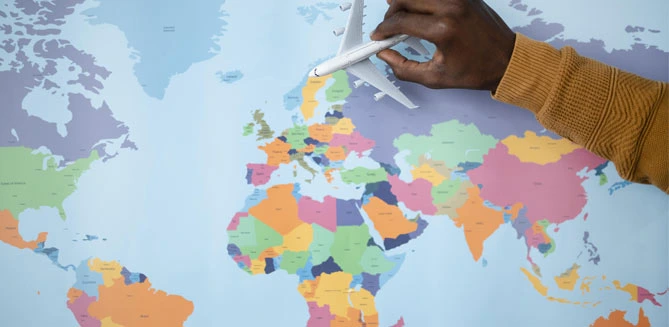Envisioning a connected world in Trade Facilitation
As trade became more liberalized through lower tariffs and quotas, the focus of policymakers has shifted to other impediments to the cross-border movement of goods, particularly to those of an administrative and logistical nature. Transport connectivity, the quality of logistics services, ease of doing business and cross-border management all play growing roles as determinants of international trade flows. Trade facilitation in particular has been identified as a tool for increased and smoother trade between countries. Trade facilitation initiatives benefit both the business community and governments. With logistics technology and logistics software, the business community benefits by obtaining enhanced competitiveness in national and international markets due to reduction in delays and costs, which are achieved with predictable and efficient movement of goods across borders. National administrations are able to utilize modern procedures to enhance controls, ensure proper collection of revenues due and at the same time contribute to the economic development through increased trade and encouragement of foreign investment.
The work done by World Trade Organisation (WTO) World Bank, World Customs Organisation (WCO), United Nations and other international bodies links into the commitments made by the international community to help least developed countries and meaningful integration of multilateral trading system into global economy. These institutions are achieving the same by providing technical assistance and removing procedural and institutional bottlenecks in trade.
In order to further boost trade, Single Windows have emerged in many countries. Single Windows are platforms that are government mandated and allow for the submission of information to fulfil regulatory requirements between economic operators and government authorities. These platforms aim to facilitate the import and export of goods. A single point of entry for the exchange of electronic information between regulatory agencies and trading participants is simpler, faster and more efficient with reduced risk of errors and data duplication. With increased cross-border trade, there is a need now to have regional single windows that would facilitate exchange of trade data between countries. These regional single windows would digitise trade documents and automate processes.
Within this context, the vision of Kale Logistics Solutions – as a provider of global logistics software solutions (logistics software company) is to connect the global logistics industry using technology thereby eliminating unnecessary paperwork, inefficiencies and opaqueness.
Unlike other logistics software companies, Kale is offering community wide and enterprise wide solutions. In short, Kale is a ubiquitous logistics software company that can offer cloud-based solutions for different processes and purposes in the logistics industry.
As a logistics software company, Kale understands every single aspect of the trade with our inhouse subject matter experts. Most importantly, we deliver best in class solutions for all stakeholders in the logistics industry.
In addition to this, Kale is now available in different locations worldwide with inhouse experts in each location. Due to this, as a logistics software company, Kale has emerged as a major player in the digital logistics ecosystem.
Moreover, Kale’s ability as a multi-modal cloud-based service provider has made it stood apart as a unique logistics software company.























